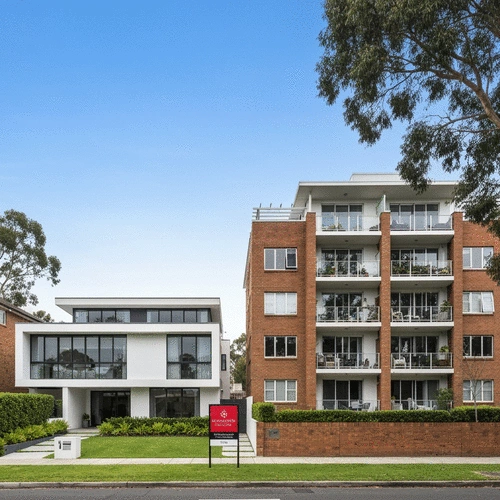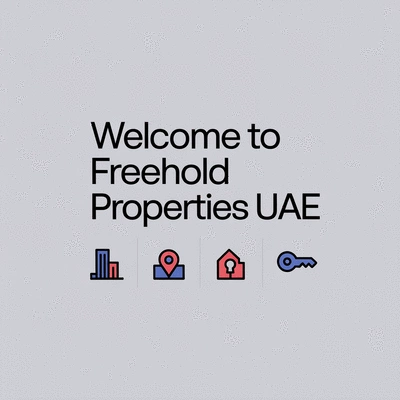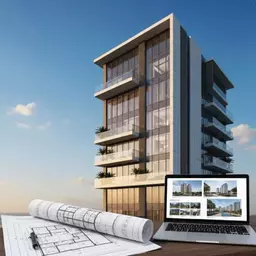As the real estate landscape evolves, understanding the nuances of property ownership is more important than ever. With the potential for both freehold and leasehold properties, how do you choose the right path for your investment?
What You Will Learn
- Freehold ownership provides complete control over the property and land, allowing for renovations and higher resale potential.
- Leasehold ownership means you own the property but lease the land, often leading to restrictions on modifications and lower resale value.
- Consider your duration of stay and financial commitment when deciding between ownership types.
- Stay informed about market trends, as the demand for freehold properties is expected to grow significantly by 2025.
- Understanding the financial implications, such as ground rent for leasehold properties and higher upfront costs for freehold, is crucial for making informed decisions.
Freehold vs. Leasehold: Key Differences and Considerations
This visual compares the fundamental characteristics, advantages, and disadvantages of freehold and leasehold property ownership, along with critical considerations for potential buyers.
Freehold Ownership
You own the property and the land it sits on outright, offering complete control.
- ✓Complete ownership of property & land
- ✓Full rights to alter or renovate
- ✓Higher resale value & investment potential
Leasehold Ownership
You own the property, but lease the land from a freeholder for a specific term.
- ✗Ownership of property only, not land
- ✗Lease agreements limit changes
- ✗Potentially lower resale value
Buyer Considerations
Key factors to weigh before making an ownership decision.
- ●Duration of Stay (long-term vs. short-term)
- ●Financial Commitment (upfront vs. ongoing)
- ●Property Usage (personalization vs. investment)
Financial Implications
Costs associated with each ownership type.
- ●Purchase Price (Freehold generally higher)
- ●Maintenance Fees (Leasehold may have more)
- ●Stamp Duty & Taxes (region-specific)
Understanding Freehold and Leasehold Ownership Structures
When diving into the world of real estate, understanding the differences between freehold and leasehold ownership structures is crucial. Each type of ownership comes with its own set of rights and responsibilities, impacting how you enjoy and manage your property. As someone deeply familiar with the UAE property market, I often see buyers confused by these terms, so let’s clarify them!
Defining Freehold Ownership: What Buyers Need to Know
Freehold ownership means that you own the property and the land it sits on outright. This type of ownership provides you with complete control over your property, allowing you to modify, rent, or sell it as you please. It's particularly appealing for those looking for long-term investment and stability in their real estate endeavors.
- Complete ownership of both property and land
- Full rights to alter or renovate the property
- Typically higher resale value and investment potential
For many buyers, understanding the implications of freehold ownership is the first step toward making informed decisions in the vibrant UAE real estate market. I often recommend this path for both local and international buyers looking to secure their dream homes.
Exploring Leasehold Ownership: Key Characteristics and Implications
Leasehold ownership, on the other hand, means you own the property but not the land it sits on. Instead, you lease the land from a freeholder for a specific period – usually long-term, such as 99 years. While this may sound appealing due to generally lower purchase prices, it's essential to understand the implications it carries. For context, the UK government provides detailed statistics on leasehold dwellings, highlighting the prevalence and characteristics of this ownership type.
- Ownership of the property only, not the land
- Lease agreements can limit modifications and usage
- Potentially lower resale value compared to freehold properties
Many buyers find leasehold properties attractive for their affordability, but it’s crucial to weigh these factors carefully. I’ve seen firsthand how the complexities of lease agreements can cause frustration later on!
Freehold Advantages: Why Some Buyers Prefer This Ownership Type
There are many reasons why buyers gravitate towards freehold properties. The primary advantage is the sense of security and autonomy that comes with complete ownership. With freehold, you can freely decide how to use or improve your property, which is a huge draw for many.
- Greater investment potential
- Freedom to make changes without needing permission
- Less hassle with land lease renewals
This freedom allows homeowners to truly personalize their space, creating a home that fits their lifestyle and preferences. At Freehold Properties UAE, I emphasize these benefits to clients eager to make a lasting investment.
Leasehold Disadvantages: Common Concerns for Potential Buyers
While there are benefits to leasehold ownership, it’s essential to be aware of the potential drawbacks. Leasehold properties often come with various restrictions that can limit your freedom as a homeowner. For example, you might need permission from the freeholder to make significant changes to the property. Recent discussions and reforms, such as those outlined by the HomeOwners Alliance on leasehold reform and the UK's Leasehold and Freehold Reform Bill, underscore these ongoing concerns and potential changes in how leasehold properties are managed and regulated.
- Ongoing ground rent payments
- Restrictions on property modifications
- Complications when the lease approaches expiration
These issues can create uncertainties for potential buyers. I always advise my clients to thoroughly understand these factors before making commitments in the UAE market.
Pro Tip
When considering whether to invest in a freehold or leasehold property, take the time to review the terms of any lease agreements carefully. Understanding your rights and restrictions upfront can save you from potential headaches later on. Always seek legal advice if you're unsure about any clauses in the contract!
Frequently Asked Questions about Freehold and Leasehold Property Ownership
Summarizing Key Insights on Freehold vs. Leasehold Properties
As we navigate the vast landscape of real estate, understanding the differences between freehold and leasehold properties is essential for potential buyers. The decision you make can profoundly impact not only your investment but also your lifestyle. It’s crucial to take into account several factors that can guide your choice. Let's explore what you should consider!
What Should Potential Buyers Consider When Choosing Ownership Type?
When deciding between freehold and leasehold, buyers should reflect on their long-term goals and personal circumstances. Here are some vital considerations:
- Duration of Stay: How long do you plan to live in the property? Freehold might be preferable for long-term living, while leasehold can be ideal for shorter stays.
- Financial Commitment: Evaluate your budget. Freehold properties typically require a larger upfront investment.
- Property Usage: Are you looking for a home to personalize, or are you considering it as an investment?
- Market Trends: Stay informed about trends in your desired area—this can guide your decision on which ownership type is more advantageous.
These considerations can provide clarity as you weigh your options. As a real estate expert, I always advise my clients to take their time and consider their unique situations before making any decisions.
Looking Ahead: Market Predictions for Freehold and Leasehold Properties in 2025 and Beyond
The landscape of freehold and leasehold properties is ever-changing. As we look towards 2025, several key trends are emerging:
- Increased Demand for Freehold Properties: With more buyers valuing ownership autonomy, the freehold market is expected to grow.
- Leasehold Reforms: Anticipated changes in regulations may enhance the appeal of leasehold properties, making them more viable for buyers.
- Technological Influence: Advances in technology will likely streamline the buying process, impacting both ownership types.
These trends suggest that whether you favor freehold or leasehold, staying informed will be critical. At Freehold Properties UAE, we continuously monitor these shifts to provide our clients with the best advice and insights.
Evaluating Financial Implications: Costs Associated with Each Ownership Type
Understanding the financial implications is crucial when choosing between freehold and leasehold properties. Here are some costs to consider:
- Purchase Price: Freehold properties usually have a higher initial cost.
- Maintenance Fees: Leasehold properties may involve additional fees that can add up over time.
- Stamp Duty and Taxes: Ensure you know what taxes apply to each ownership type in your region.
- Resale Costs: Be aware of any potential costs when selling either type of property.
Evaluating these financial aspects will help you understand the long-term investment you are making. It’s always wise to consult with a professional to ensure your investment aligns with your financial goals.
Encouraging Informed Decision-Making for Property Buyers
At Freehold Properties UAE, we believe that informed decision-making is the cornerstone of successful property buying. I encourage all potential buyers to take a moment and reflect before making choices.
How to Evaluate Personal and Financial Factors in Property Ownership
To navigate your property ownership journey effectively, consider these steps:
- Assess Your Lifestyle: Think about your current and future needs—will they change?
- Conduct Financial Planning: Make a detailed budget that includes all potential expenses associated with ownership.
- Seek Professional Advice: Leverage the experience of real estate professionals to understand market conditions.
Taking these steps can pave the way for a fulfilling property ownership experience. My team and I are always here to assist in any way possible.
Next Steps: Resources for Understanding Market Trends and Ownership Options
To further empower your property buying journey, consider utilizing the following resources:
- Online Market Reports: Stay updated with the latest trends in the UAE property market.
- Real Estate Workshops: Attend events that provide valuable insights and networking opportunities.
- Consulting Services: Engage with professionals who can provide tailored advice based on your needs.
These resources can enhance your understanding of the market and help you make better-informed decisions. I’m always happy to point you in the right direction!
Understanding Mortgage Options: Financing Your Property Purchase
Lastly, understanding your financing options is crucial. Here are some mortgage types you might consider:
- Fixed-Rate Mortgages: Consistent monthly payments can make budgeting easier.
- Variable-Rate Mortgages: While they may start lower, these can fluctuate, affecting your monthly payments.
- Islamic Financing Options: In the UAE, explore Sharia-compliant financing options that align with your values.
Each mortgage option has its benefits and drawbacks, so consider what works best for your financial situation. If you have questions, my team and I are here to help you find the best financing solution!
Recap of Key Points
Here is a quick recap of the important points discussed in the article:
- Freehold Ownership: Complete ownership of both the property and land, allowing for modifications and typically offering higher resale value.
- Leasehold Ownership: Ownership of the property only, with restrictions on modifications and potentially lower resale value due to lease agreements.
- Consider Your Goals: Reflect on duration of stay, financial commitments, and property usage when choosing between freehold and leasehold options.
- Market Trends: Anticipated growth in freehold demand and potential reforms in leasehold regulations may influence buying decisions.
- Financial Implications: Understand costs associated with both ownership types, including purchase price, maintenance fees, and taxes.










